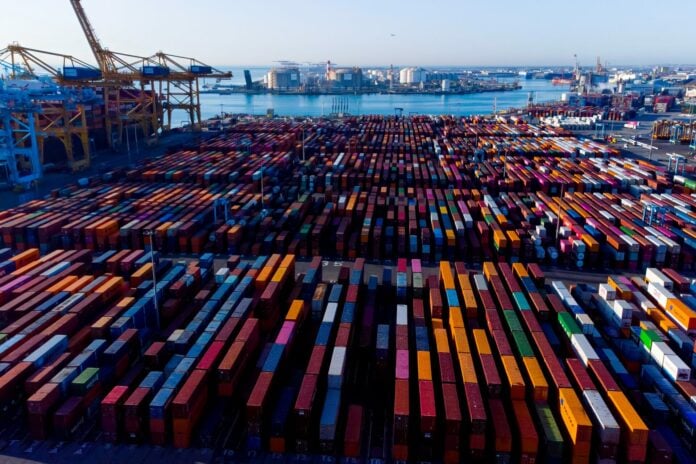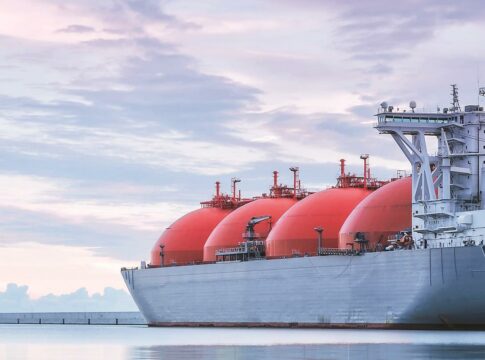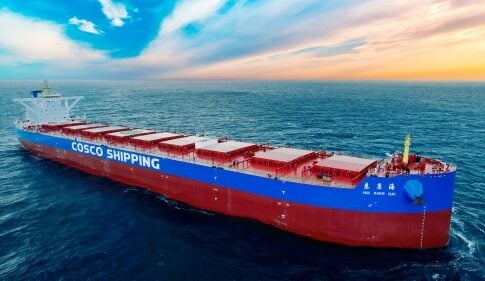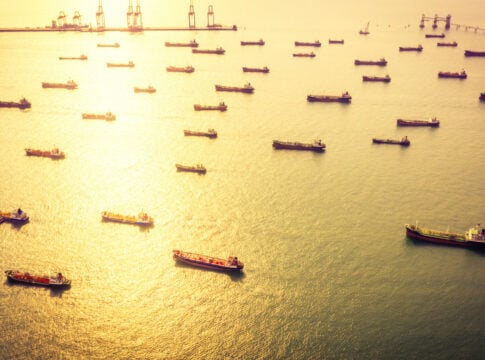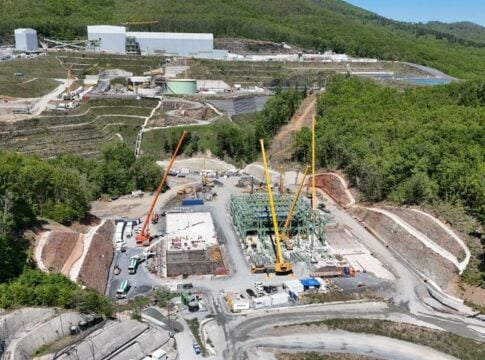Despite geopolitical tensions and trade tariffs, the world’s leading ports recorded the strongest expansion in nearly a decade in terms of container traffic in 2024, with an 8.1% increase and 743.6 million TEUs, according to Lloyd’s List.
Shanghai, in first place worldwide, and Singapore, in second, maintained their positions, followed by Ningbo-Zhoushan, Shenzhen, Qingdao, Guangzhou, Busan, Tianjin, Dubai/Jebel Ali and Port Klang.
Of the top ten ports, six belong to China, while Morocco’s Tanger Med ranked 17th, remaining the top port in Africa.
Rotterdam is the first among European ports, occupying 11th place, with a throughput of 13.82 million TEUs (+2.8%), while Piraeus was in 43rd place, down 6.1%, to 4.79 million TEUs.
Asia remains dominant, with Chinese ports accounting for more than 40% of the total throughput of the top 100 ports.
US ports on the East and West Coasts as well as on the Gulf Coast recorded significant growth, due to increased consumer demand and precautionary stockpiling amid trade tensions with China.
European hubs recorded milder increases, despite uncertainty from the war in Ukraine, while emerging markets – such as India, Vietnam and Turkey – benefited from the realignment of supply chains and new regional trade agreements.
Cosco: Actions to bolster Piraeus port
With a total handling of 4,792,199 TEUs in 2024, the port of Piraeus, which is in 43rd place on Lloyd’s list, records a 6.1% drop in transit traffic compared to 2023, mainly affected by the Houthi threats to shipping passing through the Red Sea and the Suez Canal.
Piraeus Container Terminal (PCT), a subsidiary of Cosco, handled almost 4.3 million TEUs, recording a decrease of 7.8%, while the pier operated by PPA S.A. (PPA) recorded a 9.6% increase to 563,725 TEUs, thanks to a nearly 35% increase in local Greek cargo, which offset a 3.1% decrease in transshipped containers.
The port’s annual capacity amounts to 7.2 million TEUs, with Cosco’s plans to expand to at least 10 million TEUs, aiming to establish it as a leading Mediterranean transshipment hub and a major Asia-Europe import-export gateway.
In the automotive sector, total traffic fell by 22% to 247,600 vehicles.
However, Cosco launched a new vehicle transport service to and from Piraeus and signed an agreement with Neptune Lines for the movement of finished cars from China to Europe, as well as for the provision of catering services to 21 ports in 12 countries in the Mediterranean, the Black Sea and North Africa, strengthening the port’s profile as a regional logistics hub.


